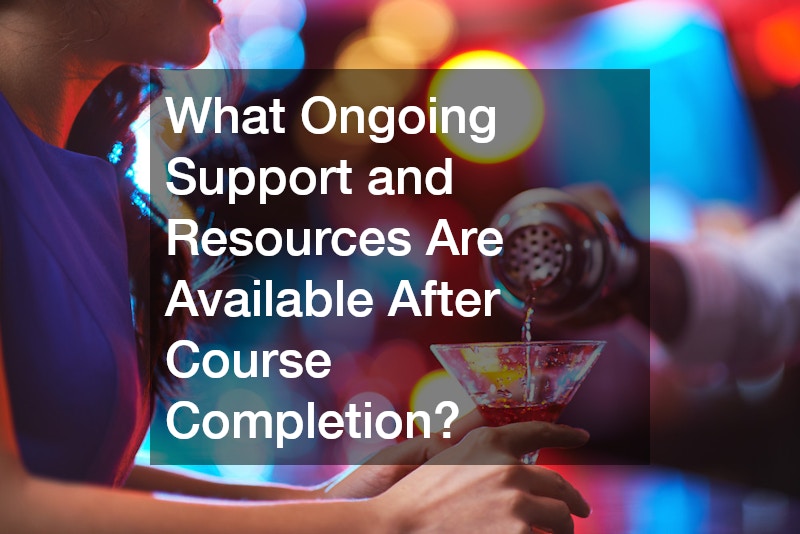This article will guide you through the essential steps in preparing for your alcohol training course. We’ll cover key topics and address common questions to help ensure your success. Understanding the nuances of alcohol service and regulations is crucial for professionals in the hospitality and service industry. A well-prepared approach can significantly enhance the learning experience and facilitate comprehension of the intricate subject matter.
By following the outlined strategies, you will be poised to excel in your training and apply your knowledge effectively in real-world scenarios.
What are the prerequisites for an alcohol training course?
Understanding the necessary qualifications
Before enrolling in an alcohol training course, it is important to be aware of the necessary qualifications. Generally, participants must meet age requirements, which can vary depending on the country or state. For instance, in many parts of the U.S., you must be at least 18 years old to enroll in such courses. Additionally, certain prior certifications may be required, especially if the course is advanced. Furthermore, there may be legal stipulations, such as having no felonies related to alcohol offenses, that need to be considered before application.
Course material and textbook requirements
When it comes to studying for an alcohol training course, having the right materials at your disposal is crucial. Most institutions provide a list of essential textbooks and resources upon enrollment. However, additional materials might need to be purchased separately, so budgeting for these is advisable. Many courses offer online access to textbooks and supplementary resources, which can be particularly beneficial for interactive study sessions. Be sure to review the course syllabus thoroughly to ensure that all necessary resources are acquired before the course commencement.
How can I best manage my time while taking the course?
Creating a study schedule
Effectively managing your time during the alcohol training course is fundamental to balancing personal and professional responsibilities. Creating a detailed study schedule is an excellent way to ensure that all course material is covered systematically. Begin by identifying the times of day when you are most productive and allocate study sessions accordingly. Don’t forget to incorporate buffer periods for unforeseen circumstances and necessary breaks. Consistency in following your schedule will greatly improve your productivity and confidence in handling course demands.
Pacing yourself through the curriculum
Taking on too much at once can lead to burnout, so it is crucial to pace yourself through the curriculum. Break down the syllabus into manageable sections and set realistic goals for each study session. Completing smaller tasks can provide a sense of accomplishment and motivate continued progress. Navigating through complex subjects in digestible bits reduces stress and prevents information overload. By the end of the course, you will find that steady and consistent efforts produce more fruitful outcomes than cramming.
What learning techniques are most effective for this type of course?
Active learning strategies
Active learning strategies play a crucial role in enhancing retention and understanding of course material. Techniques such as quizzes, flashcards, and interactive sessions can make learning more engaging and impactful. Regularly testing your knowledge through quizzes reinforces what you have learned and identifies areas needing improvement. Interactive study sessions, such as role-playing or scenario analysis, are especially beneficial for grasping real-world applications of the material. Incorporating these strategies into your study routine will facilitate a deeper understanding of the course content.
Collaborative learning opportunities
Collaborative learning experiences open the door to broader understanding and diverse perspectives. Group studies or discussion forums allow you to engage with peers, share insights, and gain feedback on complex topics. By working collaboratively, you can clear up uncertainties and confirm understanding through peer explanations. Joining course-related online communities can also provide networking opportunities and a sense of camaraderie. Effective collaboration with others enriches the learning process and makes it a more enjoyable and enlightening experience.
How should I prepare for the final assessment or examination?
Reviewing past course materials
Reviewing past course materials is a fundamental step in preparing for the final assessment. Begin by organizing notes, highlighting key concepts, and any instructor feedback from previous assignments. Regularly revisiting these materials solidifies your understanding of the subject matter. Employing review techniques such as mind mapping or summarization can aid in identifying connections between topics. Thorough preparation of past material is indicative of the potential for comprehensive success in exams.
Understanding the exam format
Familiarizing yourself with the exam format is essential to avoid surprises on the day of assessment. Understanding the question types you will encounter, such as multiple-choice, fill-in-the-blank, or essay questions, helps tailor your study methods effectively. Knowing the time allocation for each section can also aid in pacing yourself during the exam. Additionally, understanding the scoring system can help in prioritizing sections that carry more weight. Insight into the exam format enhances confidence and prepares you mentally for the test environment.
What ongoing support and resources are available after course completion?
Access to professional networks
Completing an alcohol training course opens up opportunities to connect with professional networks within the industry. These networks can be invaluable for gaining insights into industry trends, finding job opportunities, and receiving mentorship. Engaging with such communities helps develop relationships that can advance your career and support lifelong learning. Participating in industry events, webinars, and workshops further broadens professional connections and keeps you updated with regulatory changes. Being an active member of these networks is an investment in your professional development and career trajectory.
Resources for Continuing Education
Your education does not stop after completing your initial course. Continuing education is key to keeping your knowledge current and enhancing professional expertise. Many institutions offer additional certifications or advanced courses to bolster your understanding of specialized topics in the alcohol industry. Online platforms also provide a plethora of resources for self-paced learning, workshops, and webinars that align with current industry standards. Embracing ongoing education ensures you remain competitive and effective in your professional role.
.


